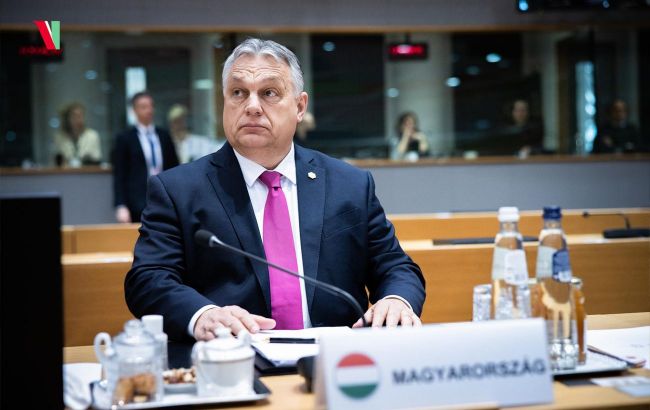Trojan horse for Russia: Czechia criticizes Orban over EU summit
 Viktor Orban, Prime Minister of Hungary (facebook.com/orbanviktor)
Viktor Orban, Prime Minister of Hungary (facebook.com/orbanviktor)
Hungarian Prime Minister Viktor Orban is a Trojan horse that destroys European unity and serves Russia's interests, according to Czech Minister of European Affairs Martin Dvorak.
"Today, Orban is that Trojan horse, who is intensely and unfortunately more and more effectively breaking that unity and trying to show that we should disregard Ukraine," Dvorak said, adding that Orban is blackmailing Europe and abusing the right of veto.
During a European Council meeting, Orban left the room, allowing the summit to approve the start of negotiations with Ukraine. However, he blocked the review of the long-term EU budget, which included around 50 billion euros for Ukraine.
Orbán faces criticism for allegedly using the Ukrainian issue as leverage in an attempt to unlock access to EU funds. Last week, the European Commission released 10 billion euros after the publication of a Hungarian report on judicial reform, while another 21 billion euros remain frozen.
"I think the real name (for the Hungarian approach) is blackmail. I think the real name is the abuse of veto rights, not to protect Hungary’s national interests, but to protect Russia’s interests," added the minister.
Hungary's stance on Ukraine's EU accession
Previously, Hungary had threatened to block all negotiations related to Ukraine's accession to the EU. President Volodymyr Zelenskyy managed to engage in a conversation with Orban on the eve of the EU leaders' summit during his visit to Argentina. According to Zelenskyy, the conversation was frank and concerned the European affairs of both states.
During the summit, the European Council ultimately decided to open negotiations on Ukraine's accession.
50 billion euros for Ukraine
The European Commission proposed providing financial assistance to Ukraine amounting to 50 billion euros by 2027. On December 14, EU leaders discussed this initiative at the Brussels summit. However, on December 15, Hungary vetoed the decision, despite the support of 26 other bloc members.
Hungarian Prime Minister Viktor Orban said that he would not approve such a decision until the bloc disburses all frozen funds designated for his country.

